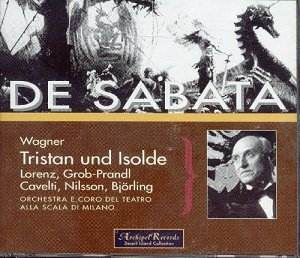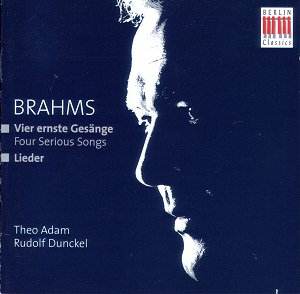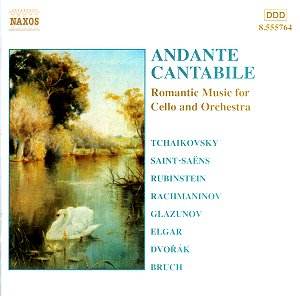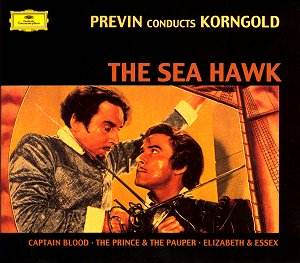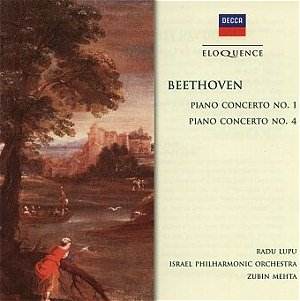 Composer: Ludwig van Beethoven
Composer: Ludwig van Beethoven
Works: Piano Concerto No. 1 in C major, Op. 15; Piano Concerto No. 4 in G major, Op. 58
Performers: Radu Lupu (piano), Israel Philharmonic Orchestra, conducted by Zubin Mehta
Recording: DDD: recorded 1980 (No. 1); ADD: recorded 1978 (No. 4)
Label: ELOQUENCE DECCA 466 707-2
Few composers have wielded the transformative power of the piano concerto with the same fervor as Ludwig van Beethoven. His early works, particularly the Piano Concerto No. 1 in C major, Op. 15, and the more mature Piano Concerto No. 4 in G major, Op. 58, reveal a trajectory of innovation that captures the essence of the Classical transition into Romanticism. The two concertos presented in this reissue of Radu Lupu’s esteemed 1970s recordings afford listeners a remarkable opportunity to witness the nuanced evolution of Beethoven’s pianistic language and the interpretative flair of one of the 20th century’s most revered pianists.
Lupu’s performance of the First Piano Concerto is marked by a refreshing clarity and a robust sense of dialogue between the piano and orchestra. From the outset, the bright and buoyant character of the Allegro con brio is expertly rendered, showcasing Lupu’s dexterous touch. The slow movement, Largo, reveals a profound depth of expression; here, Lupu navigates the delicate emotional landscape with a reflective solemnity that resonates deeply. The finale bursts forth with an infectious energy, demonstrating Lupu’s ability to balance the work’s exuberance with a sense of playful spontaneity. While one might find more technically polished interpretations in the catalogue, Lupu’s artistry lies in his instinctive comprehension of Beethoven’s intentions, which resonates with authenticity.
Transitioning to the Fourth Piano Concerto, one encounters an exceptional juxtaposition of lyrical beauty and innovative orchestration. This concerto is notable for its distinct opening, wherein the piano enters before the orchestra, an audacious choice that underscores Beethoven’s evolving compositional voice. Lupu’s phrasing in this movement is exquisite, with a lyrical quality that feels both spontaneous and meticulously crafted. However, the orchestral accompaniment under Mehta, while spirited, occasionally falters in ensemble precision, particularly in the transitions between themes. The second movement, Adagio, is a revelation; Lupu’s pianissimo passages create a palpable tension, deftly contrasting the orchestra’s more aggressive gestures. This tension reflects the Romantic drama that Beethoven was beginning to explore, and Lupu’s interpretative choices here highlight the emotional weight of the music remarkably.
The recording quality, while reflective of its time, does present challenges. The digital clarity of the First Concerto contrasts with some muddiness in the orchestral textures of the Fourth, likely due to the constraints of the engineering techniques of the late 1970s. Nonetheless, the overall balance allows the listener to engage deeply with Lupu’s piano lines, which soar above the orchestral fabric with a compelling presence.
Comparatively, more recent interpretations by renowned pianists such as Maurizio Pollini or Daniel Barenboim offer a broader dynamic range and a more cohesive orchestral partnership. However, Lupu’s performances possess a unique warmth and an introspective quality that transcends mere technical execution, allowing us to appreciate the subtleties of Beethoven’s rhetoric.
Radu Lupu’s interpretations of Beethoven’s Piano Concertos No. 1 and No. 4 reaffirm his status as a profound interpreter of the repertoire. The performances encapsulate the essence of Beethoven’s genius—his ability to convey a spectrum of emotions, from exuberance to introspection. Lupu’s choices, though not devoid of technical imperfections, draw listeners into a shared experience with the composer, offering an engaging exploration of these pivotal works. This recording, available through the Eloquence label, serves as an important reminder of Lupu’s artistry and the enduring power of Beethoven’s music.
